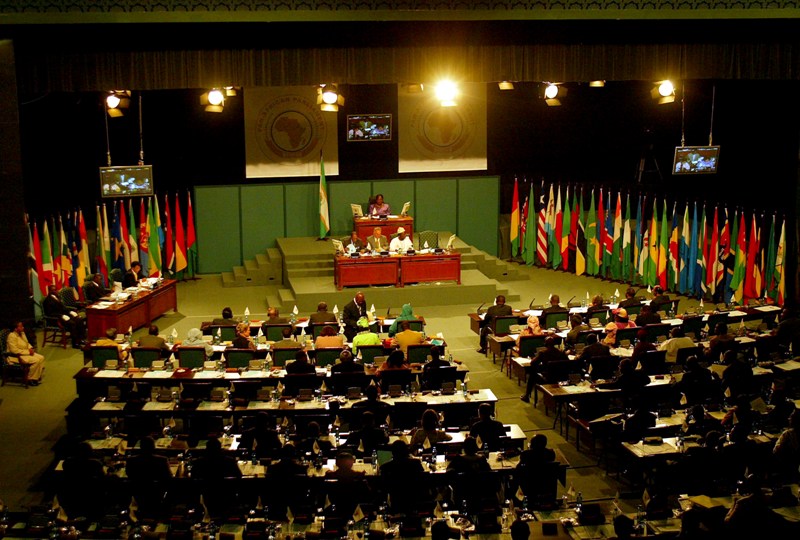The members of the International Press Institute (IPI), meeting at their 62nd Annual General Assembly during the IPI World Congress on May 20, 2013 in Amman, Jordan, adopted by unanimous vote a resolution welcoming the decision of the Pan African Parliament at a meeting at Midrand, near Johannesburg, South Africa, on May 15 to launch a continent-wide campaign to promote and protect press freedom and persuade African governments to abolish criminal defamation and “insult’’ laws, as well as other laws that restrict access to information and its publication in the public interest.
The Pan African Parliament was established by the African Union in 2004.
IPI members regard this as a major move by a governmental institution to combat the growing secrecy adopted by many African governments in the conduct of public affairs, the promulgation of new laws to restrict journalists in their news gathering, and the continuing persecution of journalists by many repressive African governments. So far this year, such persecution has resulted in the deaths of 11 African journalists, representing more than one-quarter of all journalist killings worldwide this year. Sadly, last year was no different: in 2012 African journalists accounted for 28 of all 132 journalists killed worldwide, just under one quarter. Attacks on journalists have also resulted in serious injury, long prison sentences almost entirely on trumped up charges or charges that would not be countenanced in a democratic state, and often imprisonment without trial, all to prevent critical reporting.
The resolution announcing the campaign, titled, “Press Freedom for Development and Governance: Need for Reform’’, encourages African leaders to sign the Declaration of Table Mountain. The Declaration, drawn up by African editors during the annual world newspaper congress of the World Association of Newspapers and News Publishers (WAN-IFRA) in Cape Town, South Africa in 2007, is a continent-wide campaign to repeal criminal defamation and other restrictive media laws, and calls on countries to place press freedom on a higher agenda.
Only two African countries – Liberia and Niger – have so far signed the Declaration, despite wide support for it from media rights groups and civil society organisations around the globe. One signatory is Nobel laureate Archbishop Desmond Tutu.
The Pan African Parliament’s action is especially appropriate and timely on a continent where, according to international monitoring groups, the press enjoys an acceptable degree of freedom in only five of Africa’s 54 countries.
IPI notes that the Parliament has extremely limited legislative powers and thus cannot enforce the resolution on members, but it urges the Parliament to strive to acquire appropriate authority to lend muscle to its campaign.
While the campaign is greatly needed in Africa with its ghastly record of state abuse of journalists, it would also be welcome in other regions of the world where the regression of media freedom has become a worrying trend in recent years
The Parliament plans to monitor the progress of press freedom on the continent by establishing a PAP Index of Media Freedom in Africa. In addition it will set up a PAP Award on Media Freedom in Africa.



